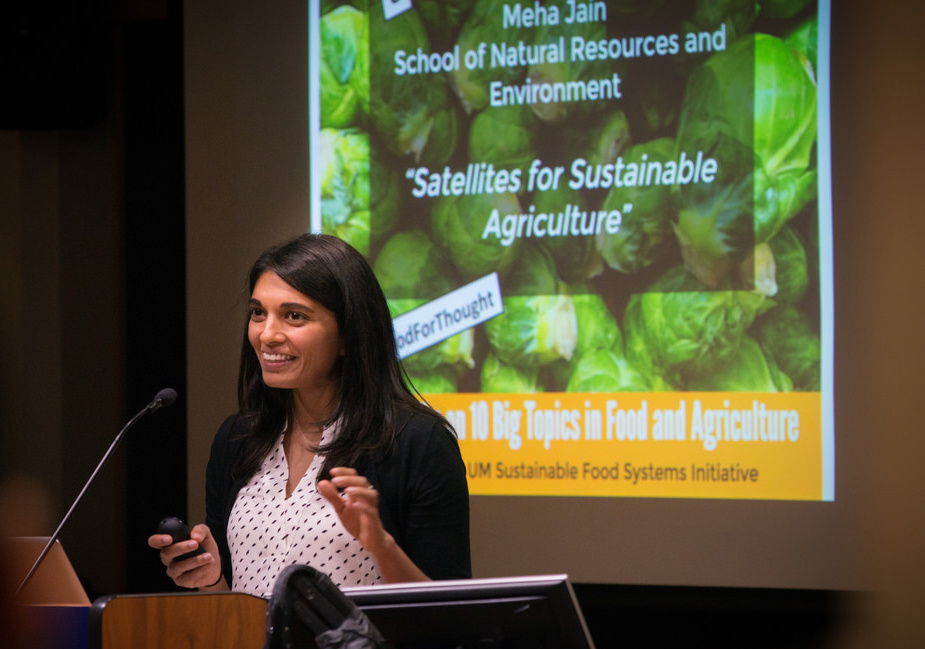
10 Questions: Dr. Meha Jain
Assistant Professor Dr. Meha Jain’s research examines the impacts of environmental change on agricultural production and strategies that farmers may adopt to reduce negative impacts. She does this by combining remote sensing and geospatial analyses with household-level and census datasets to examine farmer decision-making and behavior across large spatial and temporal scales.
1. What is the most adventurous thing you’ve ever done?
After my junior year of college, I spent a summer in Kenya doing research on how livestock grazing was affecting wildlife in the region. It was exciting because I drove a Jeep between the field station where I was staying and the field site where I worked, and it felt like a personal safari every day. I would see giraffes, elephants, and other wildlife walking by. One time we were driving back to the field station when somehow, we got stuck between a mother elephant and her baby, and the mother started trumpeting her horn. We weren’t sure what to do because she was blocking the road, so we just waited. We sat there for maybe an hour and finally she calmed down and walked away.
2. What is your guilty pleasure?
I have a toddler at home and almost no free time. Sometimes I procrastinate going to bed even though I know it’s a terrible idea and binge on a new Netflix show. The latest is “The Chair,” which thankfully did not remind me of my experience in academia.
3. What is your favorite SEAS moment?
It is hard to pick one moment, but the thing that I really appreciate about SEAS is the interdisciplinary and diverse research everyone is doing here. Sometimes I need to think about theories or questions from other disciplines, and there’s always someone within the building who is interested in collaborating. I think that’s what is so great and unique about SEAS.
4. What is the greatest piece of advice you have ever received?
The greatest advice I have ever received is that everything you experience is something that you can learn from, even if you feel like it’s a negative experience. I try to view any kind of failure or setback as a situation that I can learn from.
5. What did you want to be when you were a kid?
I wanted to be a marine biologist. I’ve always been interested in nature and wildlife, and I thought it would be exciting to go deep into the ocean and see animals that most people will never see in their natural habitat. Over time I realized I was much more interested in understanding people’s relationships with the environment and decision-making around natural resource use.
6. Favorite or most desired vacation destination?
I would love to travel to the Amazon, particularly Brazil. I have friends who are working in the area and the rainforest sounds incredible.
7. Describe your first job.
My first job was in high school, working with a chemistry professor in his lab at the University of Notre Dame. At the time I didn’t have the skills to do research, so I just washed all the dishes used in the lab. It was boring but it was also nice because I got some experience interacting with a lab and seeing what research is like.
8. What is your biggest fear or phobia?
My most irrational fear is driving. I’m a terrible driver and it seems like every time I get behind the wheel (every few months), I get in some sort of accident. So, I try to avoid driving as much as possible.
9. Who is your biggest hero/inspiration?
The person who has had the most influence on me in terms of being a role model is my dad. He grew up in a village in India with almost nothing. Through hard work and determination, he was able to get a job in Canada and then the U.S. and created a better life for us. He always said, “If you work very hard, things will work out,” and that’s something that has always stuck with me.
10. What’s your favorite hobby?
I love running as a way to unwind and clear my head.

